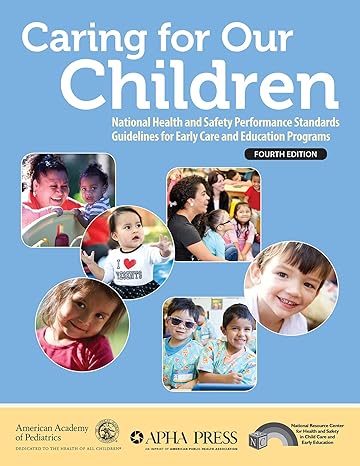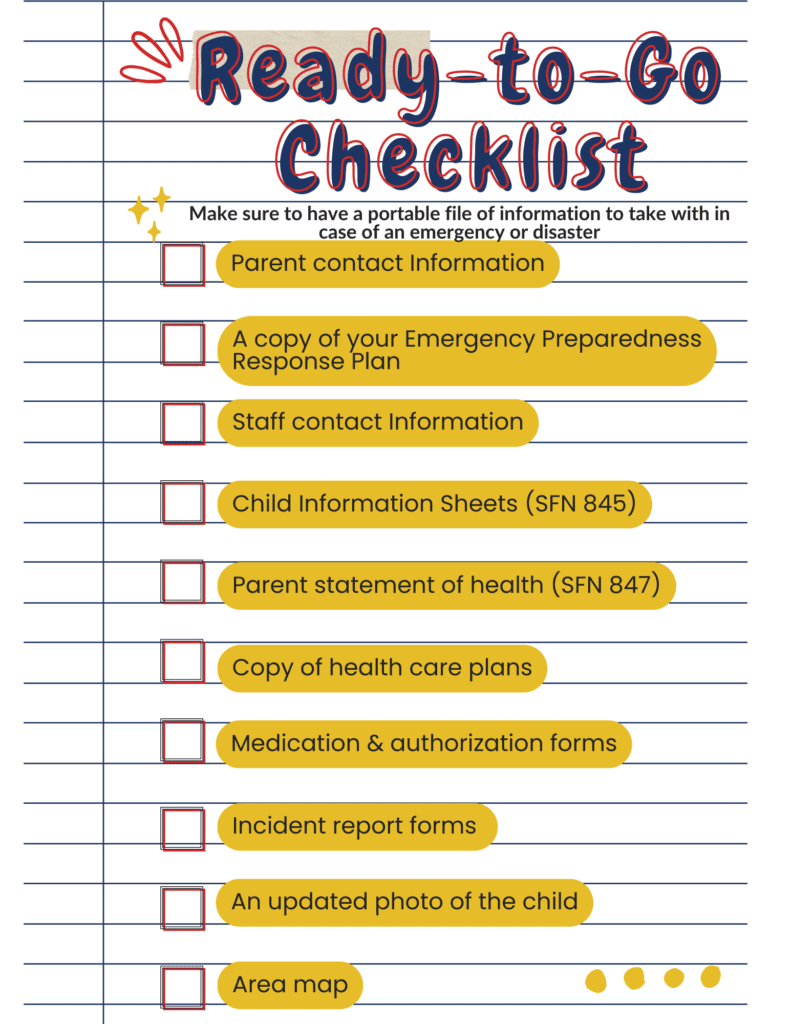Health & Safety
Protecting the health and well-being of children, staff, and families is an important component of a child care program. Our Health & Safety Specialists provide information and training on a variety of topics to help child care providers create and maintain a safe and healthy environment.
Caring for Our Children
Protecting the health and well-being of children, staff and families is an important component of a child care program. The health & safety specialists at Child Care Aware provide information and training on a variety of topics to help child care providers create and maintain a safe and healthy environment for children.
Helpful Resources
Caring for Our Children (CFOC) is a collection of national standards that represent the best practices, based on evidence, expertise, and experience, for quality health and safety policies and practices for today’s early care and education settings. Visit the Caring for Our Children website for more information.

Child Abuse & Neglect
The Mandated Reporter training is required to be completed by all child care providers and employees on an annual basis. For more information on preventing child abuse visit PCAND.org
Diapering & Toileting
Per licensing, diapers must be changed on a nonporous surface that is disinfected after each diaper change and children and staff must wash their hands after diapering and toileting. Never step away from a child on a changing table. Diapers and pull-ups should be changed as soon as they are soiled and checked visually at least every 2 hours.
Diapering & Toileting Procedures:
Safe Sleep
Licensing requires written parental permission, the provider may place one individual infant blanket or sleep sack, a pacifier, and a security item that does not pose a risk of suffocation to the infant in the crib or portable crib while the infant is sleeping or preparing to sleep
To learn more about creating a safe sleep environment and setting up and using pack-n-plays visit our YouTube channel.
Infectious Disease Exclusion Guidance
The following guide outlines the recommendations from the North Dakota Health and Human Services (HHS) for exclusion for specific diseases. These guidelines should be followed unless a school or child care facility has a more stringent policy in place. For more information about these conditions, please visit Diseases, Conditions and Immunization | Health and Human Services North Dakota or call 800-472-2180.
Toy & Environment
Making sure we have safe and clean toys for children to play with is so important in healthy brain development. Please ensure that you follow manufacturer instructions, check www.cpsc.gov for product recalls and remember, if a toy can fit in a toilet paper tube it is too small for children under the age of 3 years old. Children should not be placed in restrictive equipment (jumpers, walkers, swings, floor seats etc.) for more than 15 minutes two times a day. It’s important to clean mouthed toys after every use and other toys should be cleaned weekly.
First Aid
Accidents happen, let’s try to be as prepared as possible! Child care providers should have at least one first aid kit readily available, wherever children are. Wherever you go, please bring a first aid kit- you never know when you’ll need an ice pack or band aid. Think about adding items such as hand sanitizer, tissues, and garbage bags to your first aid kits. First aid kits should be restocked after each use and inventory should be checked monthly. If first aid is administered, make sure you fill out an incident report. Please keep the first aid kits out of the reach of children.
Emergency Preparedness & Response
The outcome of an emergency or disaster is affected by your advanced preparation. In an emergency, whether it is a natural disaster, technological disaster, or an attack, children may not understand what is happening and may be physically or developmentally unable to protect themselves. Child care programs that have emergency disaster plans are better able to react and protect the lives of those involved.
Create a Ready-to-Go File
Child care programs need a portable file of information to take with them in case of an emergency or disaster. Recommended items to include in a Ready-to-Go File
- A copy of your Child Care Emergency Plan
- Parent contact information
- Staff contact information
- Child information sheets (SFN 845)
- Parent Statement of Health (SFN 847)
- Copies of Health Care Plans
- Child photo with names
- Medication/Authorization forms
- Incident Report forms (SFN 438)
- A copy of the Emergency Relocation Shelter Agreement
- Copies of Emergency Transportation Permission Agreement
Preparation & Response
Conduct Monthly Emergency Drills
- North Dakota licensing regulations state that child care programs must conduct monthly fire drills and note them in a drill log.
- It is recommended to conduct smoke detector tests and monthly tornado drills and note them on a drill log.
Preparing to Evacuate
- An evacuation is necessary when it is no longer safe to remain inside the building. If available, comply with evacuation orders of emergency personnel who are on the scene or giving instructions via the phone. In the event of an evacuation have:
- Ready-to-Go File
- First aid kit
Preparing to Shelter-in-Place
- There will be times when it is best to take shelter where you are. The safest shelter-in-place option will vary depending on the emergency or disaster.
Resources
Closing and Relocation
North Dakota Department of Health & Human Services (DHHS) rules require child care providers to report emergency closings and relocations to their licensing specialist within 24 hours. Because county workers are often called out of the office to help during emergency, DHHS also requests that providers report closings and relocations to Child Care Aware® at 800-997-8515.
Resources
For additional information on:
Not finding what you are looking for?
Check out our resource page or contact us at healthandsafety@ndchildcare.org or call 1-800-997-8515 (Option 4)



